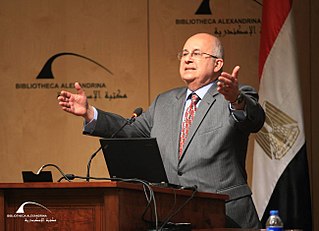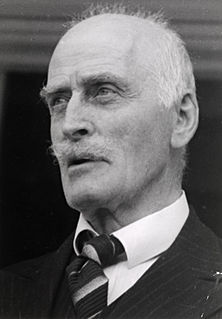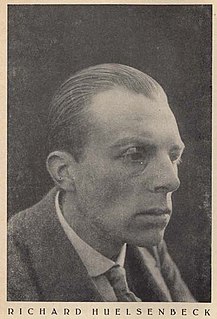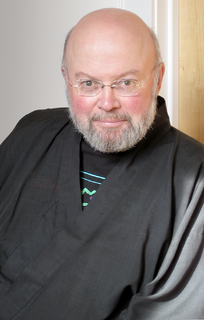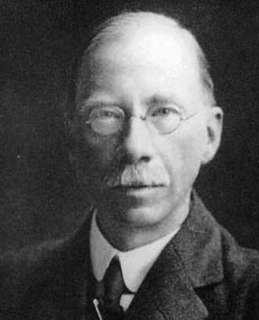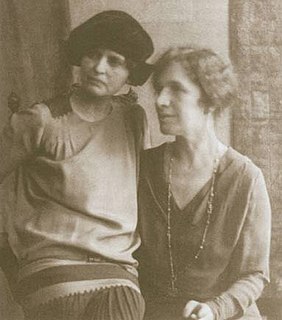Top 936 Presents Quotes & Sayings - Page 15
Explore popular Presents quotes.
Last updated on November 8, 2024.
The fact is that the beautiful, humanly speaking, is merely form considered in its simplest aspect, in its most perfect symmetry, in its most entire harmony with our make-up. Thus the ensemble that it offers us is always complete, but restricted like ourselves. What we call the ugly, on the contrary, is a detail of a great whole which eludes us, and which is in harmony, not with man but with all creation. That is why it constantly presents itself to us in new but incomplete aspects.
So, though there was still some store of weapons in the Shire, these were used mostly as trophies, hanging above hearths or on walls, or gathered into the museum at Michel Delving. The Mathom-house it was called; for anything that Hobbits had no immediate use for, but were unwilling to throw away, they called a mathom. Their dwellings were apt to become rather crowded with mathoms, and many of the presents that passed from hand to hand were of that sort.
If we are not fully ourselves, truly in the present moment, we miss everything. When a child presents himself to you with his smile, if you are not really there - thinking about the future or the past, or preoccupied with other problems - then the child is not really there for you. The technique of being alive is to go back to yourself in order for the child to appear like a marvellous reality. Then you can see him smile and you can embrace him in your arms.
There is something about Christmas that requires a rug rat. Little kids make Christmas fun. I wonder if could rent one for the holidays. When I was tiny we would by a real tree and stay up late drinking hot chocolate and finding just the right place for the special decorations. It seems like my parents gave up the magic when I figured out the Santa lie. Maybe I shouldn't have told them I knew where the presents really came from. It broke their hearts.
Without question, we need to disarm Saddam Hussein. He is a brutal, murderous dictator, leading an oppressive regime ... He presents a particularly grievous threat because he is so consistently prone to miscalculation ... And now he is miscalculating America's response to his continued deceit and his consistent grasp for weapons of mass destruction ... So the threat of Saddam Hussein with weapons of mass destruction is real.
I've got pages and pages of snippets of stuff, and if Max [Hershenow] sends me a track to write to I'll go through all the stuff and the initial reaction of gut and how it makes me feel and I'll sort of go from there and start pulling my favourite pieces of my lyrics and that will be a very literal word collage and from there I'll sculpt it for and whatever reason the song sort of presents itself. It's a bizarre process.
Once you have found yourself and accepted your aloneness, then the greatest blessing is to share the love that arises within you. Each new moment presents the richest opportunity to be loving. And you can share love in the simplest of ways. Be soft and gentle. Be caring and kind. Be loving in an ordinary way, without any sense of wanting anything back, Life offers you the most precious gift. The gift of allowing you to be present and share love.
The Christmas presents once opened are Not So Much Fun as they were while we were in the process of examining, lifting, shaking, thinking about, and opening them. Three hundred sixty-five days later, we try again and find that the same thing has happened. Each time the goal is reached, it becomes Not So Much Fun, and we're off to reach the next one, then the next one, then the next.
In cinema people are always walking into something and saying this is who I am, what I want, and how I'm going to get it and we don't in life - particularly not in public situations. People might know your first name, not your last name, they don't know what you do, and you're not going to offer it up. So if you start there and you realize this is a much more normal presentation in a film then you would ordinarily have; you know that there is a big life behind what everyone presents and that I think is super interesting.
Our Nation, a great stage for the acting out of great thoughts, presents the classic confrontation between Locke's views of the state of nature and Rousseau's criticism of them... Nature is raw material, worthless without the mixture of human labor; yet nature is also the highest and most sacred thing. The same people who struggle to save the snail-darter bless the pill, worry about hunting deer and defend abortion. Reverence for nature, mastery of nature- whichever is convenient.
Sara Scherr and Jeff McNeely have given us a thoughtful, sensible book about a topic of great importance to the world. There is no food security, no poverty reduction, no environmental sustainability without transforming our agricultural practices. The book ?presents well documented cases of best practices from all over the world. It should be required reading for all concerned with agriculture, the environment, food security or just the future of our children.
The intelligent poor individual was a much finer observer than the intelligent rich one. The poor individual looks around him at every step, listens suspiciously to every word he hears from the people he meets; thus, every step he takes presents a problem, a task, for his thoughts and feelings. He is alert and sensitive, he is experienced, his soul has been burned.
Although I have felt compelled to write things down since I was five years old, I doubt that my daughter ever will, for she is a singularly blessed and accepting child, delighted with life exactly as life presents itself to her, unafraid to go to sleep and unafraid to wake up. Keepers of private notebooks are a different breed altogether, lonely and resistant rearrangers of things, anxious malcontents, children afflicted apparently at birth with some presentiment of loss.
Art in its execution and direction is dependent on the time in which it lives, and artists are creatures of their epoch. The highest art will be that which in its conscious content presents the thousandfold problems of the day, the art which has been visibly shattered by the explosions of last week The best and most extraordinary artists will be those who every hour snatch the tatters of their bodies out of the frenzied cataract of life, who, with bleeding hands and hearts, hold fast to the intelligence of their time.
Literature presents you with alternate mappings of the human experience. You see that the experiences of other people and other cultures are as rich, coherent, and troubled as your own experiences. They are as beset with suffering as yours. Literature is a kind of legitimate voyeurism through the keyhole of language where you really come to know other people's lives--their anguish, their loves, their passions. Often you discover that once you dive into those lives and get below the surface, the veneer, there is a real closeness.
The Romans had, like other Pagan nations, a nature festival, called by them Saturnalia, and the Northern peoples had Yule; both celebrated the turn of the year from the death of winter to the life of spring - the winter solstice. As this was an auspicious change the festival was a very joyous one... The giving of presents and the burning of candles characterized it. Among the Northern people the lighting of a huge log in the houses of the great and with appropriate ceremonies was a feature.
He has an armload of irises and daisies and tulips and he presents them to me. I didn't know what kind of flowers you like.I like them all.Yeah?Yeah.He tries to hand them to me, but then remembers the cast. I'll put them in water.Betty swoops in the room ridiculously fast and she grabs the flowers out of Nick's hands. I'll take care of them. You lovebirds just sit on the couch and think swooning things at each other.
It’s a way of life to be always texting and when you looks at these texts it really is thoughts in formation. I do studies where I just sit for hours and hours at red lights watching people unable to tolerate being alone. Its as though being along has become a problem that needs to be solved and then technology presents itself as a solution to this problem…Being alone is not a problem that needs to be solved. The capacity for solitude is a very important human skill.
But to change all existence into a flow experience, it is not sufficient to learn merely how to control moment-by-moment states of consciousness. It is also necessary to have an overall context of goals for the events of everyday life to make senseTo create harmony in whatever one does is the last task that the flow theory presents to whose who wish to attain optimal experience; it is a task that involves transforming the entirety of life into a single flow activity, with unified goals that provide constant purpose.
We had the city trying to demolish two of our exhibition spaces, which was at first pretty disturbing. But following the freak-out is the realization that an attachment to any kind of form is pointless. Forgive me if I seem like a complete nihilist, but if the demolition trucks show up and the buildings come down, then that just presents a new setting in which an artist can work. The real challenge is trying to conceal my delight in the process.
The buddha-dharma does not invite us to dabble in abstract notions. Rather, the task it presents us with is to attend to what we actually experience, right in this moment. You don't have to look "over there." You don't have to figure anything out. You don't have to acquire anything. And you don't have to run off to Tibet, or Japan, or anywhere else. You wake up right here. In fact, you can only wake up right here. So you don't have to do the long search, the frantic chase, the painful quest. You're already right where you need to be.
We all get lost once in a while, sometimes by choice, sometimes due to forces beyond our control. When we learn what it is our soul needs to learn, the path presents itself. Sometimes we see the way out but wander further and deeper despite ourselves; the fear, the anger or the sadness preventing us returning. Sometimes we prefer to be lost and wandering, sometimes it's easier. Sometimes we find our own way out. But regardless, always, we are found.
[T]hese last few days where I've moped around damn near depressed for real, because of people who do not exist. Not really. I can buy them Christmas presents, but there is no way to send them. Sometimes I feel like I should be able to walk into the next room and there they will be, but they won't. These people do not exisit as flesh and blood, but there are different kinds of reality, and there are days when imagination feels very, very real.
I believe the proliferation of weapons of mass destruction presents the greatest threat that the world has ever known. We are finding more and more countries who are acquiring technology - not only missile technology - and are developing chemical weapons and biological weapons capabilities to be used in theater and also on a long range basis. So I think that is perhaps the greatest threat that any of us will face in the coming years.
Don't ever quit. Never quit. Never show anybody you're hurt. Grin and walk through the cannon smoke. It will drive them up the wall. You always stay true to your own principles. You always believe in your gift. God doesn't make mistakes when he presents someone with a gift like that. It's there for a reason. Tell the naysayers, those who reject you, to drop dead! Who cares?
If, on the other hand, we wish to describe a particular phenomenon without repressing our direct experience, then we cannot avoid speaking of the phenomenon as an active, animate entity with which we find ourselves engaged. To the sensing body, no thing presents itself as utterly passive or inert. Only by affirming the animateness of perceived things do we allow our words to emerge directly from the depths of our ongoing reciprocity with the world.
Now, therefore, I, Gerald R. Ford, President of the United States, pursuant to the pardon power conferred upon me by Article II, Section 2, of the Constitution, have granted and by these presents do grant a full, free, and absolute pardon unto Richard Nixon for all offenses against the United States which he, Richard Nixon, has committed or may have committed or taken part in during the period from January 20, 1969 through August 9, 1974.
I hate Christmas. Everything is designed for families, romance, warmth, emotion and presents, and if you have no boyfriend, no money, your mother is going out with a missing Portuguese criminal and your friends don't want to be your friend anymore, it makes you want to emigrate to a vicious Muslim regime, where at least all the women are treated like social outcasts. Anyway, I don't care. I am going to quietly read a book all weekend and listen to classical music.
Wherefore should I not offer my congratulations? But the very fact of them being Sayyids, those fountains of felicity, demands heartly exertions in support of Islam and their ancestor Muhammad the Lord of Apostles. Let two Kaftans of honor for the two brothers be issued from my wardrobe and let them be sent with two swords, jewel-hilted and provided with pearl mounted belts, let Jamdat-ul-Mulk write much praise and congratulations when sending these presents.
As to Science, she has never sought to ally herself to civil power. She has never attempted to throw odium or inflict social ruin on any human being. She has never subjected anyone to mental torment, physical torture, least of all to death, for the purpose of upholding or promoting her ideas. She presents herself unstained by cruelties and crimes. But in the Vatican-we have only to recall the Inquisition-the hands that are now raised in appeals to the Most Merciful are crimsoned. They have been steeped in blood!
Are not the thoughts of the dying often turned towards the practical, painful, obscure, visceral aspect, towards the "seamy side" of death which is, as it happens, the side that death actually presents to them and forces them to feel, and which far more closely resembles a crushing burden, a difficulty in breathing, a destroying thirst, than the abstract idea to which we are accustomed to give the name of Death?
Among all the emotions, the rich have the least talent for love. It is possible to love one's dog, dress or duck-shooting hat, but a human being presents a more difficult problem. The rich might wish to experience feelings of affection, but it is almost impossible to chip away the enamel of their narcissism. They take up all the space in all the mirrors in the house. Their children, who represent the most present and therefore the most annoying claim on their attention, usually receive the brunt of their irritation.
It is with a rush of home-sickness that the thought of death presents itself.... Such sentiment is the eternal stock of all religions, modified indeed by changes of time and place, but indestructible, because its root is so deep in the earth of man's nature. The breath of religious initiators passes over them; a few "rise up with wings as eagles" [Isaiah 40:31], but the broad level of religious life is not permanently changed. Religious progress, like all purely spiritual progress, is confined to a few.
Who said that justice is what you imagine? Can you be sure that you know it when you see it, that you will live long enough to recognize the decisive thunder of its occurrence, that it can be manifest within a generation, within ten generations, within the entire span of human existence? What you are talking about is common sense, not justice. Justice is higher and not as easy to understand - until it presents itself in unmistakable splendor. The design of which I speak is far above our understanding. But we can sometimes feel its presence.
It is justly considered as the greatest excellency of art to imitate nature; but it is necessary to distinguish those parts of nature which are most proper for imitation: greater care is still required in representing life, which is so often discoloured by passion or deformed by wickedness. If the world be promiscuously described, I cannot see of what use it can be to read the account; or why it may not be as safe to turn the eye immediately upon mankind, as upon a mirror which shows all that presents itself without discrimination.
Ironically, members on both sides of the debate do agree about one thing: big bang cosmology puts their position in jeopardy. The big bang poses a problem for young-earth creationists because it makes the universe billions of years old rather than thousands. Such an assertion undercuts their system at its foundation. Big bang cosmology also presents a problem for atheistic scientists because it points directly to the existence of a transcendent Creator - a fact they dare not concede.
What we take ourselves to be doing when we think about what is the case or how we should act is something that cannot be reconciled with a reductive naturalism, for reasons distinct from those that entail the irreducibility of consciousness. It is not merely the subjectivity of thought but its capacity to transcend subjectivity and to discover what is objectively the case that presents a problem....Thought and reasoning are correct or incorrect in virtue of something independent of the thinker's beliefs, and even independent of the community of thinkers to which he belongs. (p. 71)
I think when tragedy occurs, it presents a choice. You can give in to the void, the emptiness that fills your heart, your lungs, constricts your ability to think or even breathe. Or you can try to find meaning. These past thirty days, I have spent many of my moments lost in that void. And I know that many future moments will be consumed by the vast emptiness as well. But when I can, I want to choose life and meaning.
God isn't the son of Memory; He's the son of Immediate Experience. You can't worship a spirit in spirit, unless you do it now. Wallowing in the past may be good literature. As wisdom, it's hopeless. Time Regained is Paradise Lost, and Time Lost is Paradise Regained. Let the dead bury their dead. If you want to live at every moment as it presents itself, you've got to die to every other moment.
Yes, NFL players deserve to be paid well. Unfortunately, economic realities are forcing everyone to make tough choices and the NFL is no different. These are not easy negotiations, but the outcome can be positive. If both sides give a little, everyone, including fans, will get a lot and the game will improve through innovation. Even in difficult economic times, a new CBA presents us with the opportunity to secure the future of our game.
God's love has a width, length, height, and depth, but we will never reach the end of it. Our capacity to experience God's love will be exhausted long before God's capacity to give it is strained. The picture of having Christ dwell inside us by faith presents us with compelling and comforting possibilities. What Christ does in us and through us will always be 'exceedingly abundantly above all we ask or think.'
I'm a common law judge. I believe in deciding every case on its facts, not on a legal philosophy. And I believe in deciding each case in the most limited way possible, because common law judges have a firm belief that the best development of the law is the one that lets society show you the next step, and that next step is in the new facts that each case presents.
We like books that have a lot of dreck in them, matter which presents itself as not wholly relevant (or indeed, at all relevant) but which, carefully attended to, can supply a kind of "sense" of what is going on. This "sense" is not to be obtained by reading between the lines (for there is nothing there, in those white spaces) but by reading the lines themselves looking at them and so arriving at a feeling not of satisfaction exactly, that is too much to expect, but of having read them, of having "completed" them.
In translation studies we talk about domestication - translation styles that make something familiar - or estrangement - translation styles that make something radically different. I use a lot of both in my translation, and modernism does both. For instance, if you look at the way James Joyce presents Ulysses, is that domesticating a classic? Think of it as an experiment in relation to a well-known text in another language.
All things are God's already; we can give him no right, by consecrating any, that he had not before, only we set it apart to his service - just as a gardener brings his master a basket of apricots, and presents them; his lord thanks him, and perhaps gives him something for his pains, and yet the apricots were as much his lord's before as now.
Theory has nothing to do with a work of art. Pictures which are interpretable, and which contain a meaning, are bad pictures. A picture presents itself as the Unmanageable, the Illogical, the Meaningless. It demonstrates the endless multiplicity of aspects; it takes away our certainty, because it deprives a thing of its meaning and its name. It shows us the thing in all the manifold significance and infinite variety that preclude the emergence of any single meaning and view.
I realized early in my career that precisely what one reader doesn't like is what another reader loves. Collectively, any writer's audience presents a mishmash of expectations that can never all be met. What one-tenth of my readership may not be crazy about the other nine-tenths savors. The moment you start altering a book or a painting or any type of art as if it's a public collaborative, you crucify its soul. I'd rather irritate a few people and delight a lot than touch no one." ~ Karen Marie Moning
The investigation of causal relations between economic phenomena presents many problems of peculiar difficulty, and offers many opportunities for fallacious conclusions. Since the statistician can seldom or never make experiments for himself, he has to accept the data of daily experience, and discuss as best he can the relations of a whole group of changes; he cannot, like the physicist, narrow down the issue to the effect of one variation at a time. The problems of statistics are in this sense far more complex than the problems of physics.
[T]he mass-man sees in the State an anonymous power, and feeling himself, like it, anonymous, he believes that the State is something of his own. Suppose that in the public life of a country some difficulty, conflict, or problem presents itself, the mass-man will tend to demand that the State intervene immediately and undertake a solution directly with its immense and unassailable resources. This is the gravest danger that to-day threatens civilisation: State intervention; the absorption of all spontaneous social effort by the State.
All philosophers make the common mistake of taking contemporary man as their starting point and of trying, through an analysis of him, to[21] reach a conclusion. "Man" involuntarily presents himself to them as an aeterna veritas as a passive element in every hurly-burly, as a fixed standard of things. Yet everything uttered by the philosopher on the subject of man is, in the last resort, nothing more than a piece of testimony concerning man during a very limited period of time.
In societies where modern conditions of productions prevail, all of life presents itself as an immense accumulation of spectacles. Everything that was directly lived has moved away into representation. The images detached from every aspect of life fuse in a common stream in which the unity of this life can no longer be re-established. Reality considered partially unfolds, in its own general unity as a pseudo-world apart, an object of mere contemplation . . . The spectacle is not a collection of images, but a social relation among people, mediated by images.
The United States presents a value system to the world that is based on democracy, based on economic freedom, based on individual rights for men and women, .. I think that is what makes us such a draw for nations around the world. People come to the United States to be educated, to become Americans. We are a country of countries and we touch every country, and every country in world touches us.
If nature be regarded as the teacher and we poor human beings as her pupils, the human race presents a very curious picture. We all sit together at a lecture and possess the necessary principles for understanding it, yet we always pay more attention to the chatter of our fellow students than to the lecturer's discourse. Or, if our neighbor copies something down, we sneak it from him, stealing what he himself may have heard imperfectly, and add it to our own errors of spelling and opinion.
I hear that in many places something has happened to Christmas; that it is changing from a time of merriment and carefree gaiety to a holiday which is filled with tedium; that many people dread the day and the obligation to give Christmas presents is a nightmare to weary, bored souls; that the children of enlightened parents no longer believe in Santa Claus; that all in all, the effort to be happy and have pleasure makes many honest hearts grow dark with despair instead of beaming with good will and cheerfulness.
In all of my universe I have seen no law of nature, unchanging and inexorable. This universe presents only changing relationships which are sometimes seen as laws by short-lived awareness. These fleshy sensoria which we call self are ephemera withering in the blaze of infinity, fleeting aware of temporary conditions which confine our activities and change as our activities change. If you must label the absolute, use its proper name: Temporary.
You may object that by speaking of simplicity and beauty I am introducing aesthetic criteria of truth, and I frankly admit that I am strongly attracted by the simplicity and beauty of mathematical schemes which nature presents us. You must have felt this too: the almost frightening simplicity and wholeness of the relationship, which nature suddenly spreads out before us.
San Francisco is where gay fantasies come true, and the problem the city presents is whether, after all, we wanted these particular dreams to be fulfilled--or would we have preferred others? Did we know what price these dreams would exact? Did we anticipate the ways in which, vivid and continuous, they would unsuit us for the business of daily life? Or should our notion of daily life itself be transformed?
Perhaps no order of mammals presents us with so extraordinary a series of gradations as this [step by step, from humans to apes to monkeys to lemurs] - leading us insensibly from the crown and summit of the animal creation down to creatures, from which there is but a step, as it seems, to the lowest, smallest, and least intelligent of the placental Mammalia. It is as if nature herself had forseen the arrogance of man, and with Roman severity had provided that his intellect, by its very triumphs, should call into prominence the slaves, admonishing the conqueror that he is but dust.
There are times when I think being bipolar gives me the ability to see and want and write things that other people cannot and do not. One of those is writing. Creativity is something that co-presents with bipolarity. There are other times when being bipolar legitimately sucks and leads you to a point where you want to kill yourself. Very odd thing when your brain which, evolutionarily speaking, should want you to survive is telling you to die.
The theory of medicine, therefore, presents what is useful in thought, but does not indicate how it is to be applied in practice-the mode of operation of these principles. The theory, when mastered, gives us a certain kind of knowledge. Thus we say, for example, there are three forms of fevers and nine constitutions. The practice of medicine is not the work which the physician carries out, but is that branch of medical knowledge which, when acquired, enables one to form an opinion upon which to base the proper plan of treatment.










